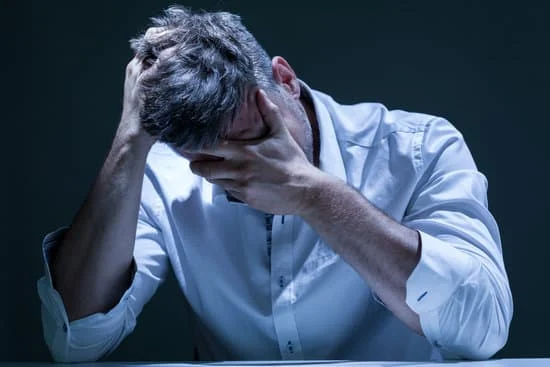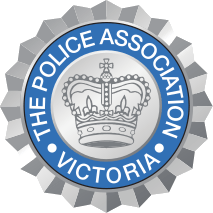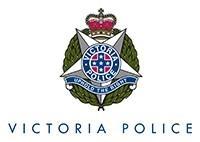Overview
Police officers work in an environment that is often stressful and physically demanding which means our body’s natural response is to produce hormones such as adrenaline and cortisol. When this natural response becomes unregulated due to long term exposure to stress it can and sometimes does lead to anxiety.
Likewise, family members of police officers may also feel stressed when living with a loved one who is working long hours, rotating shifts and who may be experiencing trauma in the workplace. The added pressures of a partner being away from home in possibly dangerous working environments can impact on family via regularly feeling worried and covering extra home commitments which add further stress on partners and sometimes children.

Feelings of stress will accordingly come and go and may dissipate when the body moves into the rest and restore mode where the parasympathetic nervous system kicks in. Simply stopping, taking a few long slow breaths, meditating or talking about the stressful situation or thoughts to a trusted colleague, friend or family member may resolve the physical feelings of anxiety however the impact of everyday work life combined with family issues and life pressures may result in the need to seek professional help.
There are several avenues to seeking support, attending your GP at the first instance and discussing the issues around work life balance will assist your doctor to assess what type of support may be required. A referral via a mental health plan is an option to commence a series of counselling sessions preferably with a suitably trauma informed clinician who understands police culture.
Otherwise, contacting your state jurisdiction Employee Assistance Program can also assist with counselling or making an appointment to speak with your state chaplaincy service can be helpful.
To identify when anxiety may be an issue and it might be appropriate to seek further assistance the following list of symptoms and signs can be helpful to look out for:
- Difficulty concentrating
- Unnecessary worries or concerns that continue to pop into your mind
- Difficulty falling to sleep or staying asleep
- A general feeling of being unable to relax
- Keeping yourself busy all the time
- Avoiding places or people
- Feeling irritable, annoyed or restless
- Avoiding family and friends
- Feeling shaky or experiencing sweaty palms
- Frequent headaches, migraines or muscle aches
- Feeling your heart racing
- Shortness of breath
- Panic attacks
- Feelings of impending doom
Step-By-Step
When should I consider seeing my GP?

Anxiety starts to impact your daily work and home life
Feelings of panic become noticeable to the point where you can't relax or you feel you need to run away
You notice your heart pounding, shortness of breath and a general feeling of impending doom
What is the next steps when seeing my GP?

Making an appointment with your GP and explaining your symptoms will assist your Doctor to understand your feelings and what may be the underlying cause
Your GP will generally ask you to fill out a number of questionnaires to assist with assessing your condition
You may then be referred to an appropriate health clinician for further diagnosis, medication or counselling
In the meantime, it may help to reduce Caffeine, Alcohol and Non Prescription Medication
Content for anxiety or depression
 03 Apr 2022
03 Apr 2022
Tasmania Police
Each individual state police jurisdictions will have mental health services for serving police which should include an Employee Assistance Program (EAP) along with other specific services. This may include EAP for transitioning police, former police up to 12 months and services for families. Career Transition services may also be included in some jurisdictions as moving into a new career after serving in the police force impacts mental health outcomes.
 14 Nov 2022
14 Nov 2022
The Blue knot Foundation – National Centre of Excellence for Complex Trauma
Support Services for survivors and supporters of people living with or effected by complex trauma including resources to empower recovery via a helpline, redress services for those effected by institutionalized child sexual abuse and a national counselling and referral service for disability including educational workshops and resources.
 03 Apr 2022
03 Apr 2022
The Change Room
Founded in 2016, this program aims to provide a combination of mental health and resilience training to those people living with physical and emotional injury. With a mix of mentors who include former elite sportsman and physical intelligence experts programs cover information relating to health, nutrition and exercise as a way to heal.
 03 Apr 2022
03 Apr 2022
TPAV: The Police Association of Victoria
All Australian Police jurisdictions have Police Unions who provide Industrial Relations, Financial and in some state’s welfare and mental health support and services. Assistance for issues relating to workers compensation, legal matters, necessitous circumstances, and career transition may also be available through your state union. Associate membership for former officers is another way to stay connected to support and services post policing.
 03 Apr 2022
03 Apr 2022
Traumatic Stress Clinic (University of NSW, The Westmead Institute)
Based in Westmead NSW, this evidence and researched based Cognitive Behavioral Therapy (CBT) program, is available for police who have experienced work based and organisational trauma. Investigating new ways of enhancing existing CBT treatments along with 11 weeks of weekly one on one counselling with a clinical psychologist to ascertain the benefits of therapy tailored specifically to emergency services workers.
 04 Jul 2024
04 Jul 2024
Trojans Trek
Trojans Trek assists police and veterans to deal with their mental health issues via a peer led wilderness experience.
 03 Apr 2022
03 Apr 2022
UNOPAA: United Nations and Overseas Policing Association of Australia
All Australian Police jurisdictions have Police Unions who provide Industrial Relations, Financial and in some state’s welfare and mental health support and services. Assistance for issues relating to workers compensation, legal matters, necessitous circumstances, and career transition may also be available through your state union. Associate membership for former officers is another way to stay connected to support and services post policing.
 03 Apr 2022
03 Apr 2022
Veteran Support (Victoria)
Wellbeing for current and former Victorian Police Employees and their families
 05 Jun 2022
05 Jun 2022
Vicarious Trauma
Vicarious trauma by way of exposures to the traumatic experiences of others can erode your sense of self and change the way you view the world.
 03 Apr 2022
03 Apr 2022
Victoria Police
Each individual state police jurisdictions will have mental health services for serving police which should include an Employee Assistance Program (EAP) along with other specific services. This may include EAP for transitioning police, former police up to 12 months and services for families. Career Transition services may also be included in some jurisdictions as moving into a new career after serving in the police force impacts mental health outcomes.
 03 Apr 2022
03 Apr 2022
Victoria Police Legacy
Police Legacy provide professional and compassionate support to families who have suffered a loss through the provision of benefits and services. Children who have lost a parent may benefit from camps, scholarships, trust funds and regular social engagement which is also extended to partners and parents. Each jurisdiction has independent services which may differ from state to state.

 Exit
Exit








